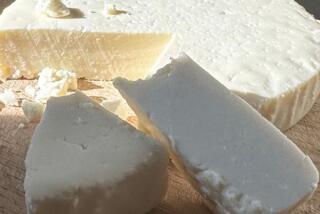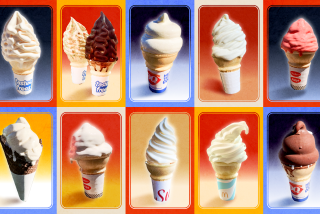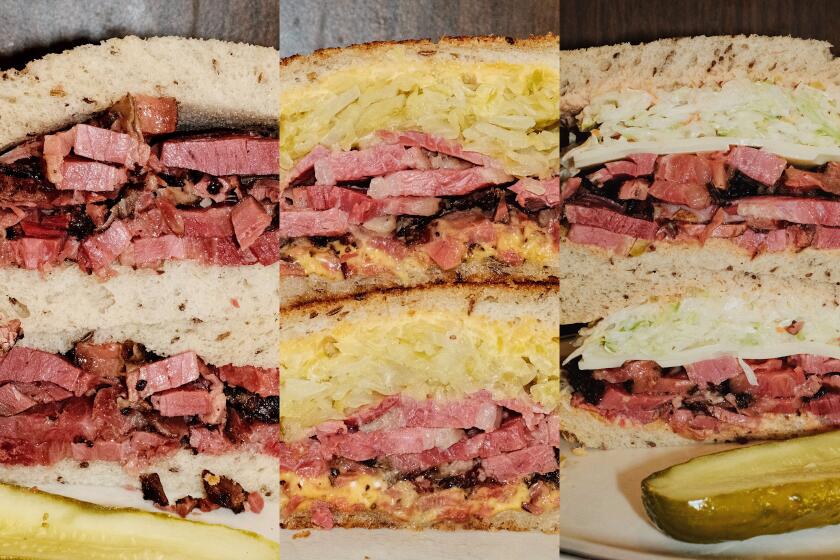When chill kills -- summer fruits you shouldn’t refrigerate
You’ve spent a lot of time and money shopping for the very best fruits and vegetables, and naturally you want to make them last. So you stick them in the refrigerator. Not so fast.
While the impulse is understandable — refrigerators are for storing food, right? — in some cases chilling is the worst thing you can do to produce. That’s particularly true in summer, when so many of the fruits and vegetables we buy are very temperature-sensitive.
Stone fruit such as apricots, peaches, plums and nectarines, as well as tomatoes, cucumbers, eggplants, peppers, melons and basil — all can suffer irreparable damage if refrigerated at the wrong time. Or even at all.
In the Kitchen: Sign up for our weekly cooking newsletter
Let’s take a look on a case-by-case basis.
Stone fruit — If you’ve ever bitten into a peach that looked absolutely beautiful but had it turn out to be mealy and flavorless, the culprit was almost certainly chill damage. It can happen at the store and it can happen at home.
When under-ripe stone fruit is chilled below 50 degrees, the ripening process is stopped and all of those wonderful flavors and aromas never get a chance to appear. Oddly enough, if the fruit is chilled all the way down to 36 degrees, that doesn’t happen, but it’s the rare refrigerator that can reliably hold that temperature.
So if you buy peaches, plums or nectarines that are still a little firm, just leave them at room temperature for a day or two. They’ll soften right up. Then you can put them in the refrigerator.
Tomatoes — This one is a little controversial. According to fruit scientists, refrigerating tomatoes is a big no-no. They say chilling inhibits some of the chemicals that lead to ripe tomato flavor. In a study, tomatoes that had been chilled were found to lack “fruity-floral aromas” and sweetness and to be higher in sourness and “off-flavors.” (Fruit geeks, check this out).
On the other hand, the scientific literature on the subject is limited and the estimable Serious Eats website ran a series of experiments last year to test that and found that refrigerating tomatoes did no harm.
I’ll split the difference and continue to store tomatoes at room temperature until they start to get soft, then refrigerate them — but let them come to room temperature before serving.
Melons — This is also a little tricky. Some melons will continue to ripen after harvest and others will refuse to (I’m looking at you, honeydew!). Generally speaking, any melons with rough, netted skin will continue to ripen and should not be refrigerated until they are perfectly ready to eat. Smooth-skinned melons such as honeydew won’t get any riper after they’ve been picked, so you might as well chill them.
Cucumbers, eggplants and peppers — Believe it or not, these are all considered to be tropical fruits (remember, a fruit is anything that contains seeds). So you can understand why they might be a little sensitive to chill. Cucumbers, eggplants and peppers can be refrigerated, but it’s best to limit it to only a couple of days. After that, you’ll start to see pitting and soft spots develop on the surface.
Basil — Most fresh herbs do just fine in the refrigerator (stick the stems in a glass of water like a cut flower and cover the top with a plastic bag and they’ll do really well). But basil is very cold-sensitive. Refrigerate even 24 hours and the leaves will begin to blacken and turn soft. Keep basil at room temperature.
There are other fruits and vegetables that shouldn’t be refrigerated as well, for various reasons.
Garlic, for example, is so strong-flavored that it will affect anything it’s stored with (garlic-flavored milk will quickly make you a believer). The same is true, to a somewhat lesser extent, for onions.
Potatoes contain an enzyme that begins to transform starch into sugar when chilled. We may love sweet potatoes, but regular potatoes that are sweet are not so nice.
Are you a food geek? Follow me on Twitter @russ_parsons1.
More to Read
Eat your way across L.A.
Get our weekly Tasting Notes newsletter for reviews, news and more.
You may occasionally receive promotional content from the Los Angeles Times.







